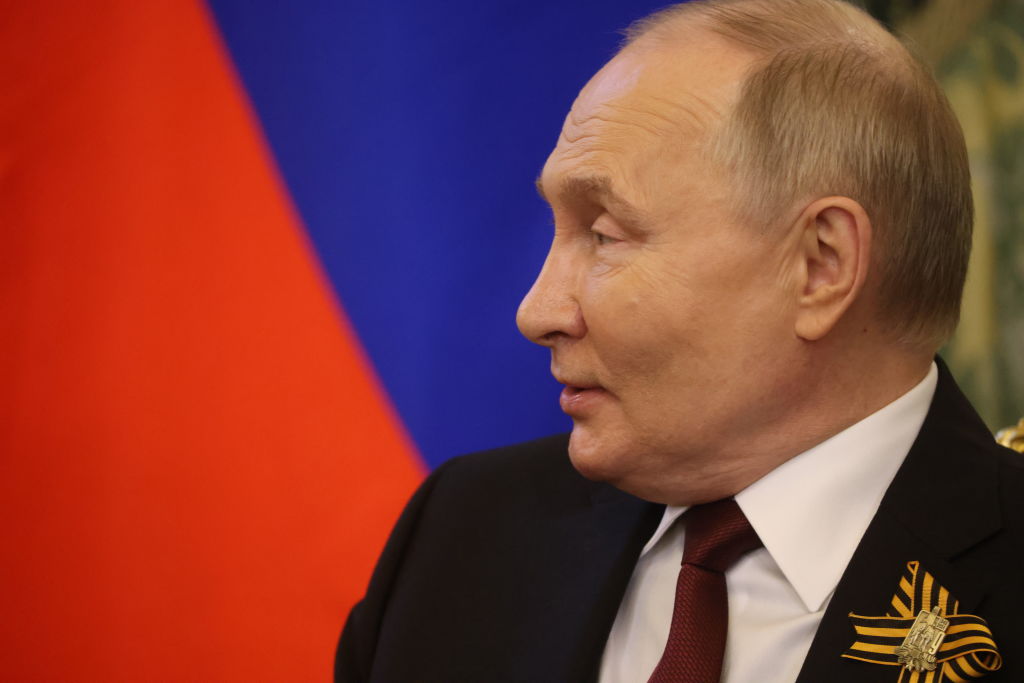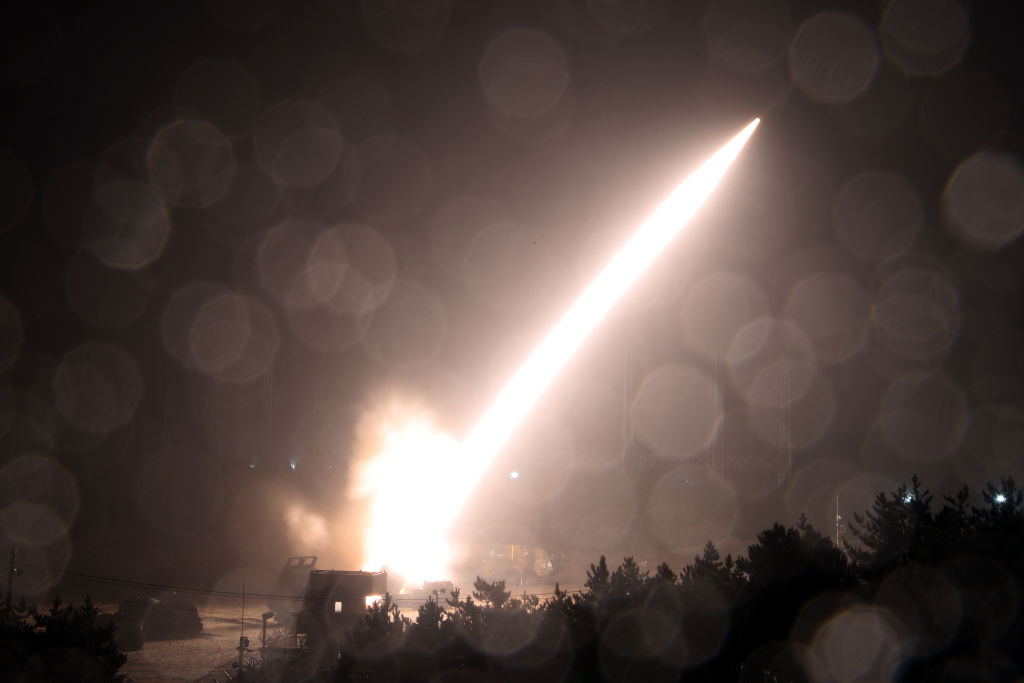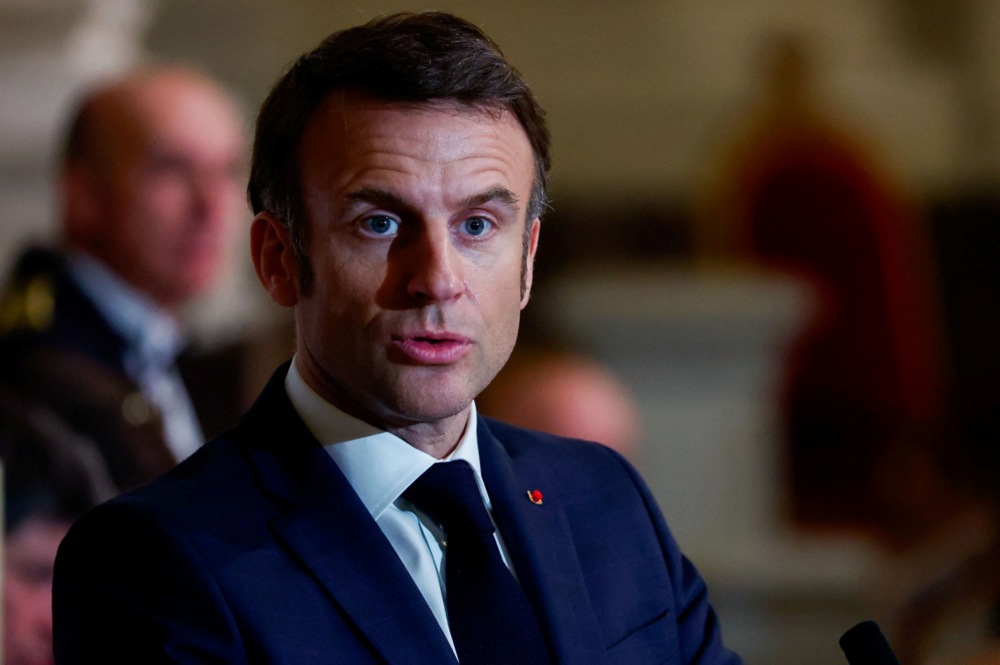President Zelensky has a new “victory plan,” which he has brought with him on his visit to the United States this week. It has been kept secret and will only be made public after President Biden sees it. The mystery and sense of anticipation created around this great unveiling rank as yet another Ukrainian PR masterstroke. This story now has the entire West holding its breath for the magic solution that has so far eluded everyone else. Of course, nothing of the sort is really on the cards.
Ending a war of this size and brutality will require more than a try at media alchemy: “narratives” don’t tend to transform into frontline military units. The tragedy of hard choices and the necessity of facing the full facts of this conflict cannot be avoided, no matter how good the speeches or how clever the symbolism of signing artillery shells in Biden’s hometown of Scranton, PA.
This is not to say that these things don’t matter – far from it. Shaping global opinion in his nation’s favour and boosting the morale of his heroic people is absolutely the duty of the Ukrainian president. Information warfare and strategic communications matter hugely in the 21st century. “Winning” on this intangible battlefield contributes directly to Zelensky’s enduring priority of obtaining more international support – military, financial and diplomatic – for Ukraine.
But, among all the emotion and media spin, it is all too easy to come to believe what we want to believe, as was the case with Ukraine’s 2023 “counter-offensive,” Prigozhin’s march on Moscow – or even the recent Kursk operation, which is increasingly looking like a major blunder even to Ukrainian commanders. In cheering Ukraine on, reinforcing its messaging, and willing its success, the sense of proportion and perspective can sometimes slip away. Yet without that wider, global perspective there is little chance at peace in any acceptable form.
Zelensky’s new victory plan does not appear to shift the analytical framework and acknowledge the full global context of this war. In fact, it sounds much like the old plan, which is fundamentally grounded in the Ukrainian president’s 10-point maximalist “peace formula” drafted early on in the conflict, and which is a non-starter for Moscow. The four main points of the latest Zelensky plan appear to reiterate existing ideas around “NATO-style” security guarantees, more money and military aid, and the freedom to use Western-supplied weapons at will. According to Zelensky, this approach will make Russia “feel it’s going to lose”, and thus enable Ukraine to force Putin to the negotiating table on better terms for Kyiv.
The problem is not that this plan is unachievable in theory, as far as it goes – but that it does not go far enough. It is incomplete, focusing rather narrowly only on dealing with Russia. Zelensky and the vast majority of Western opinion assume that the war can be “won” on the battlefield if Ukraine manages three military feats: (a) to protect its critical infrastructure (especially energy, defence production and logistics) from Russian long-range strikes; (b) to cripple Russia’s, in the same way; and (c), the hardest task, to stop and then outmatch the Russian military machine in the field.
Theoretically, on paper, it is possible that much greater, prompt and sustained Western assistance would enable Ukraine to gain the upper hand in all these three dimensions of the war. But the challenge is not always appreciated to its fullest extent. Ukraine’s energy grid has already suffered “immense damage” and Russian strikes are only growing in “accuracy and ferocity.” More air defence is vital, but extra Western-supplied systems are not easy to come by.
Regarding Ukraine’s own strategic strikes on Russian oil refineries and ammunition depots, these have been increasingly effective as Kyiv has perfected its tactics and equipment. But the Russians also learn from their failures, albeit slowly. Their defences are likely to improve. In turn, Kyiv could gain permission to use Western cruise missiles – a very tricky political decision – but supplies will be low and the range is likewise limited. And, ultimately, if it comes to it, the enemy can relocate key infrastructures deeper into Russia as they did in WWII. It would be a major disruption, and difficult to do, but not impossible in theory.
As for gaining a decisive advantage over Russian field forces, again this is much more difficult than it sometimes appears from the Western coverage of the war. By Zelensky’s own admission, current levels of Western assistance – including the massive military aid package voted by the US Congress in April – are not enough even to equip “4 out of 14” brigades needed at the front. Meanwhile, the Russians are grinding through Ukraine’s crucial Donbas defences in multiple directions, advancing at the highest pace since the early phase of the war. It is a full-blown offensive that is rolling up some of the strongest Ukrainian positions, like Vuhledar. At this point it is wholly unclear how and whether the Ukrainian command will be able to stabilise the frontline again.
In these conditions the scale of the resources needed (and Western political will) to turn the tide in Kyiv’s favour on all three counts is enormous even if Russia’s own war effort remains stagnant at current levels, i.e. if its military-economic mobilisation doesn’t increase in response to any extra pressure from Ukraine. And the fundamental reason why Russia is able to not only stay in this fight, but also expand its military capacity, is China’s help.
Perhaps the most misunderstood and under-discussed – relative to its vital importance – aspect of this war is the role of China. We find ourselves in a very curious situation. On the one hand, Beijing’s involvement in supporting the Russian economy as well as Putin’s military machine is well documented; on the other hand, it only appears as an afterthought in Western debates.
When the war began and Western sanctions hit, Russia effectively reoriented its economy – from energy exports to manufactured goods imports – towards China, to the point where it is now deeply dependent on it. The vast majority of the microelectronics and machine tools Russia needs for its advanced weapons now come from China; and the list goes on. In short, without Beijing’s help, Moscow could not keep up its illegal war.
Russia also receives substantial and essential military support – such as ammunition, drones and missiles – from Iran and North Korea. More broadly, it enjoys a significant degree of public opinion sympathy and even overt diplomatic support from the Global South. In all this, Russia’s “merit” is only partial. Much more significant – arguably, even decisive – is the pro-Russian signal sent from Beijing, which weighs heavily in the calculations of all these anti-Western (or, at best, “nonaligned”) actors. In the Global South most roads tend to lead to Xi’s court, as China acts as the lynchpin of the emerging so-called “alternative” to the US-led world order.
The Ukraine war is not, therefore, simply a contest between Kyiv and Moscow. Just as Ukraine depends on Western backing to survive and keep fighting, so does Russia depend on assistance from the Chinese-led Eurasian Axis and the broader Global South. This is a proxy war where the fates of both Ukraine and Russia, in different ways and to different degrees, hang on their bigger and stronger sponsors.
The West may increase its help to Zelensky; but then China and its fellow revisionist powers will increase their help to Putin. We have already seen this happen. Neither side can afford to let their ally fail, as the geopolitical consequences would be more costly for them, at the global level, than the price of continued support.
Until this reality is properly understood and accounted for in the international efforts to find a solution to this conflict, we will keep going in circles around self-referential “victory” plans that have little to do with what is actually feasible. It’s increasingly clear that the way to end the war and ensure a stable long-term peace is to look beyond Russia and act upon its support system. In other words, the key to the Ukraine war is in Beijing.
Gabriel Elefteriu is deputy director at the Council on Geostrategy in London and a fellow at Yorktown Institute in Washington, D.C.






Three old military ‘truths’ shaken by the Ukraine war